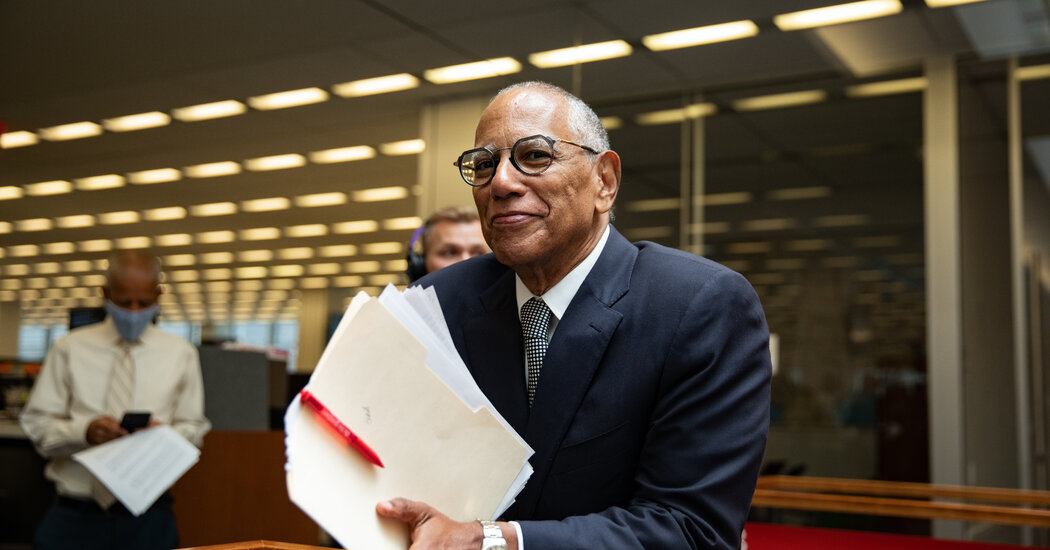Dean Baquet, who got his start in journalism at local newspapers and made a name for himself as an investigative reporter, will lead a new local investigative journalism fellowship program at The New York Times when he retires in June after eight years as editor-in-chief of the paper.
During his tenure as executive editor, Mr Baquet, 65, urged his journalists to conduct research that could have the greatest possible impact. Now he and a group of investigative editors plan to teach young journalists how to do the work at a local level.
“The Times has always wanted a way to do something about the crisis in the local news,” he said. “We happen to be successful as an institution; we happen to be doing really well. And local journalism is not doing so well.”
Fellows will work closely with Mr. Baquet and the group of editors he will select, producing articles that The Times will allow local news organizations in the affected areas to publish for free.
mr. Baquet said young journalists from backgrounds who are underrepresented in newsrooms would be especially journalists who may not have the financial backing or time to complete long-term projects.
He declined to specify how much The Times would spend on the fellowship program, but described it as “a significant investment”. He added that the size of the first fellowship class would be announced later.
Details of the long-standing fellowship are still being worked out — including the start date — but Mr Baquet said Tuesday he would commit to running the program full-time after stepping down as executive editor, and Joe Kahn, the editor-in-chief, will take over. .
“I intend to work long hours on this,” Mr. Baquet said.
He said he planned to be directly involved in editing and talking through the reporting with colleagues. The editors who join him also work full-time on the fellowship and are not borrowed from agencies at The Times.
The new fellowship program complements The Times’ other programs for emerging journalists, including the newsroom and editorial residency, which provide mentorship to aspiring journalists and editors.
Mr Baquet said AG Sulzberger, the publisher of The Times, put forward the idea of a new fellowship program earlier this year.
“We started talking about it and it was immediately appealing,” said Mr. bag. “For me at this point in my career it was a way to give something back to the profession. And it was also a way for me to teach – hopefully learn – to young journalists and others how to do investigative reporting.”
In a press release announcing the fellowship, Mr. Sulzberger said Mr. Baquet’s “deep passion for local and investigative work” would set “his relentless journalistic spirit and ability to nurture talent against one of our industry’s most pressing needs.” .”
Mr Sulzberger described the decline of local investigative journalism as a “national tragedy”, saying that fewer and fewer people across the country had access to information about their communities and that many local news outlets lack journalists to spot abuses at local governments.
“We hope this fellowship can play a small part in closing this dangerous and growing societal divide,” he said.
Baquet got his start in local newsrooms such as The States-Item and The Times-Picayune in his hometown of New Orleans, and at The Chicago Tribune, where he won a Pulitzer Prize for investigative work that pinpointed corruption in city council committee spending. brought light.
During his time as editor-in-chief of The Times, the editors won 18 Pulitzer Prizes in a period punctuated by the political rise of Donald J. Trump and a globally disruptive pandemic.
When the guys get to The Times and get to work, Mr. Baquet said, he wants them to make up stories on a truly local level.
“I actually think that local investigative reporting done well and vigorously can also find a wider audience,” he said.
He added that he wanted to make sure the stories weren’t just told through a national lens.
“We should be looking at institutions in places like Oklahoma and Louisiana,” he said. “That’s how I see it.”

